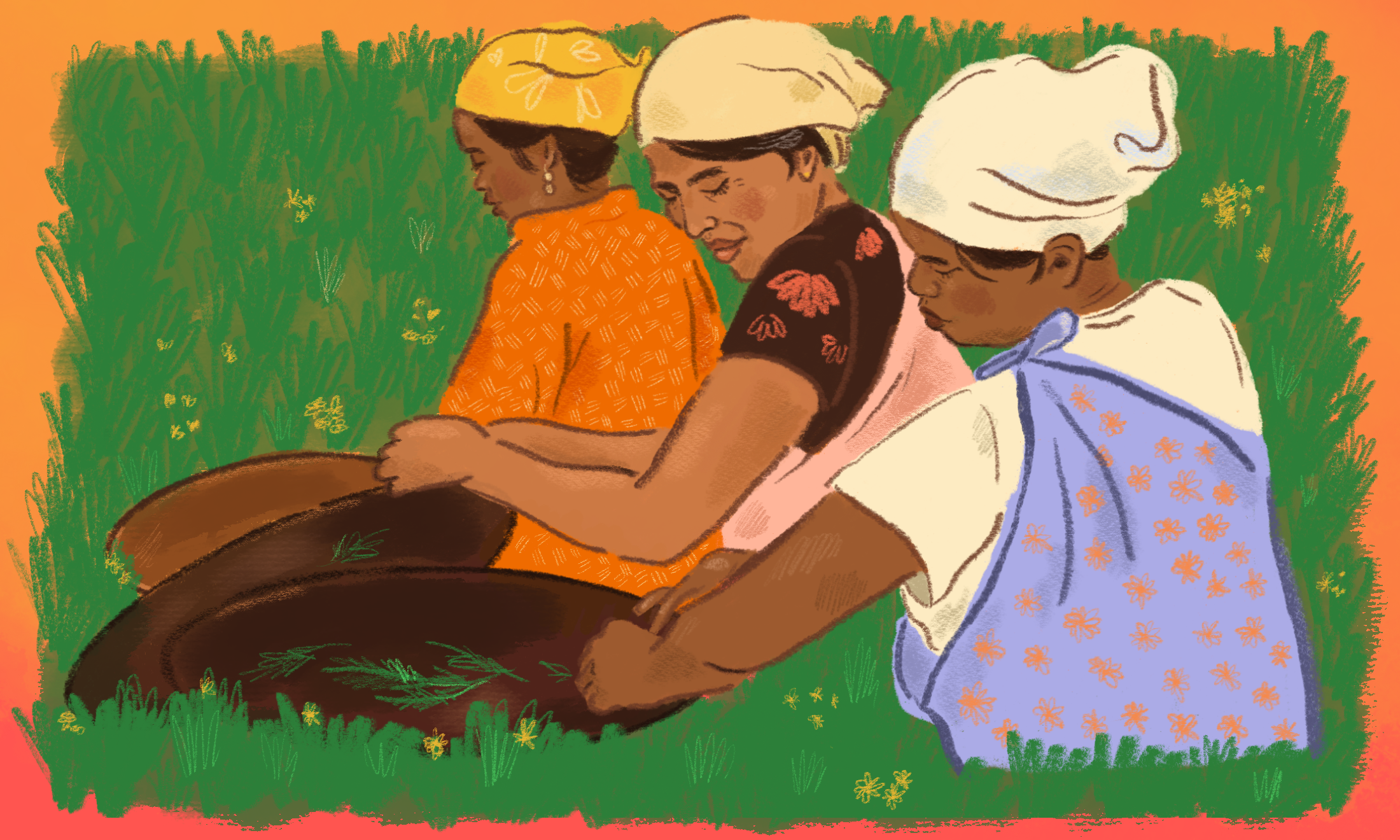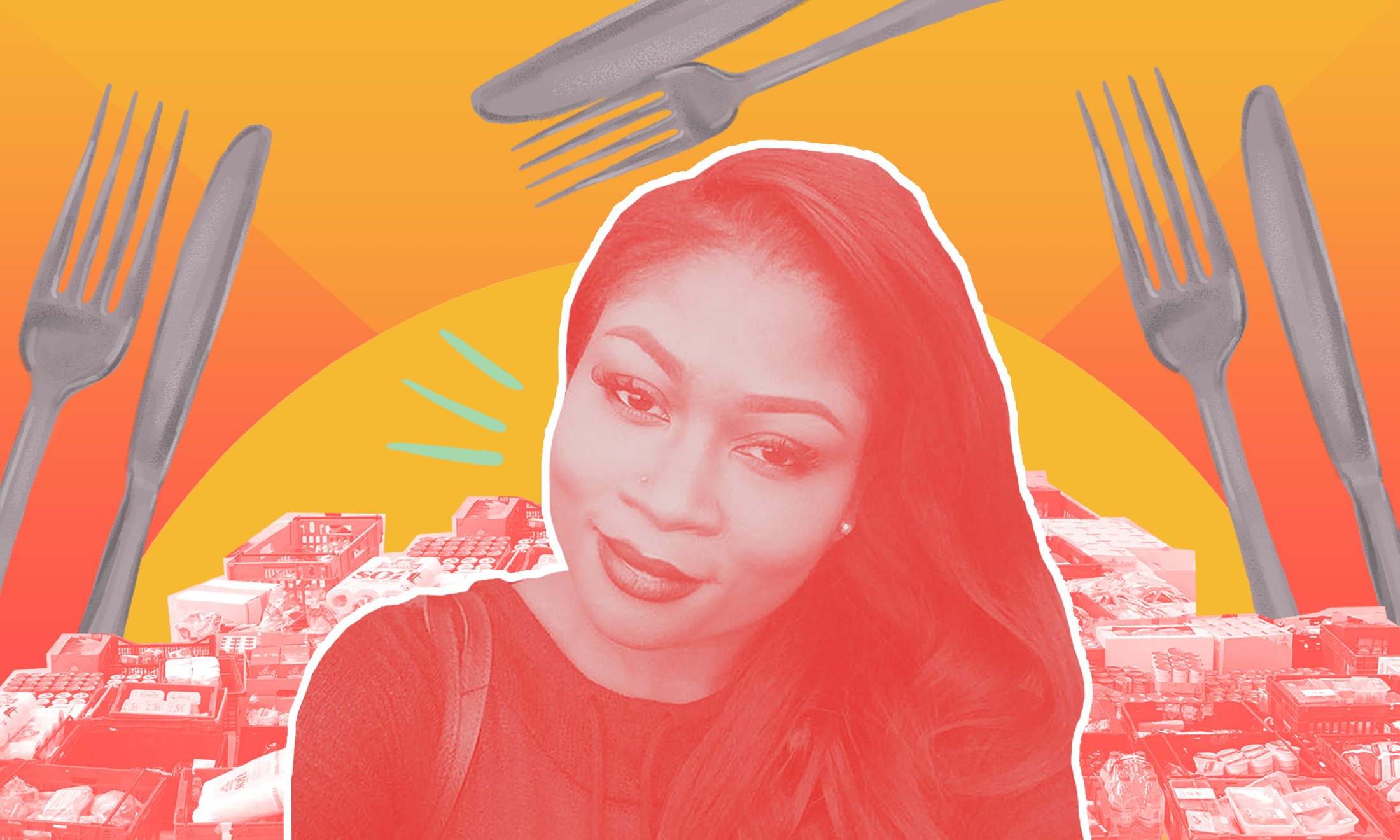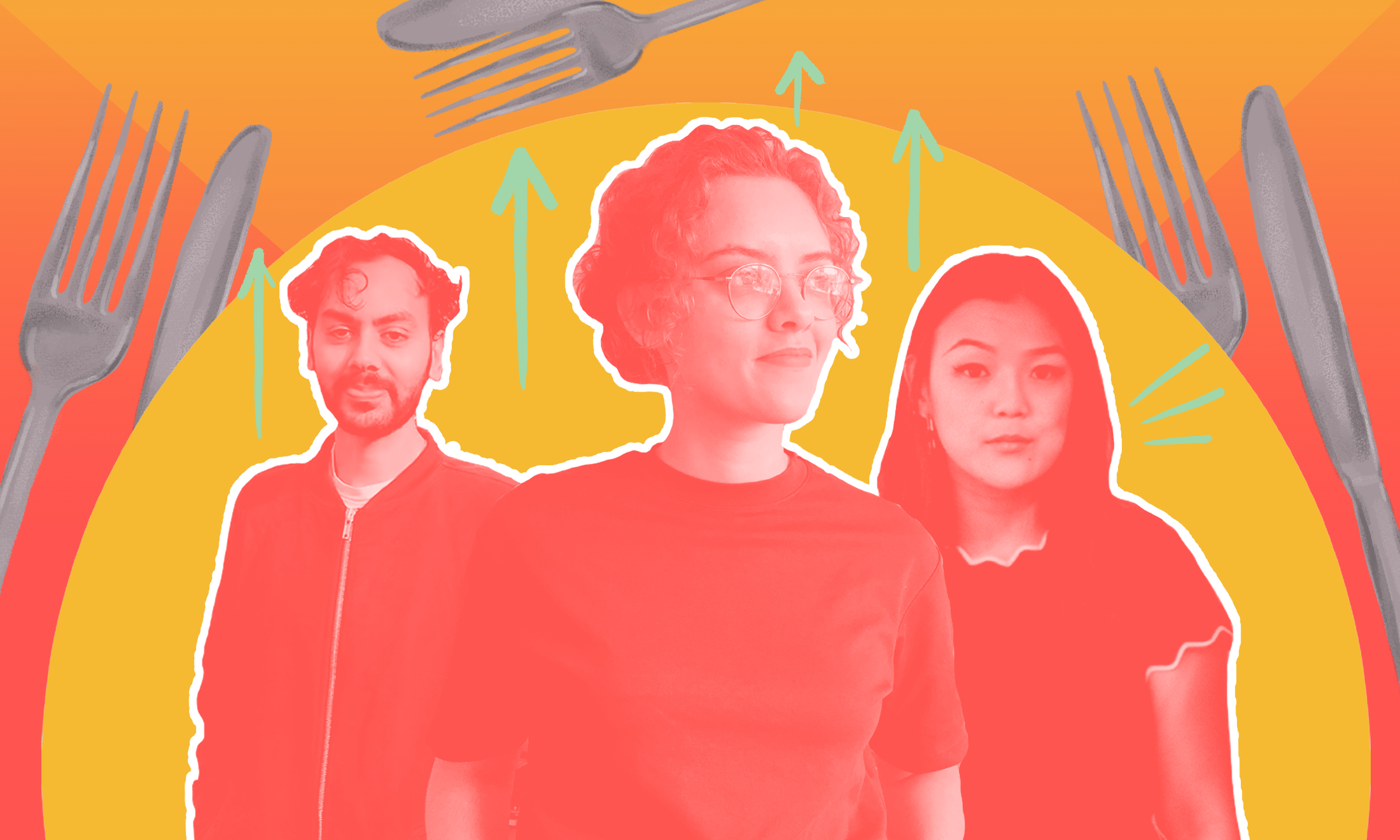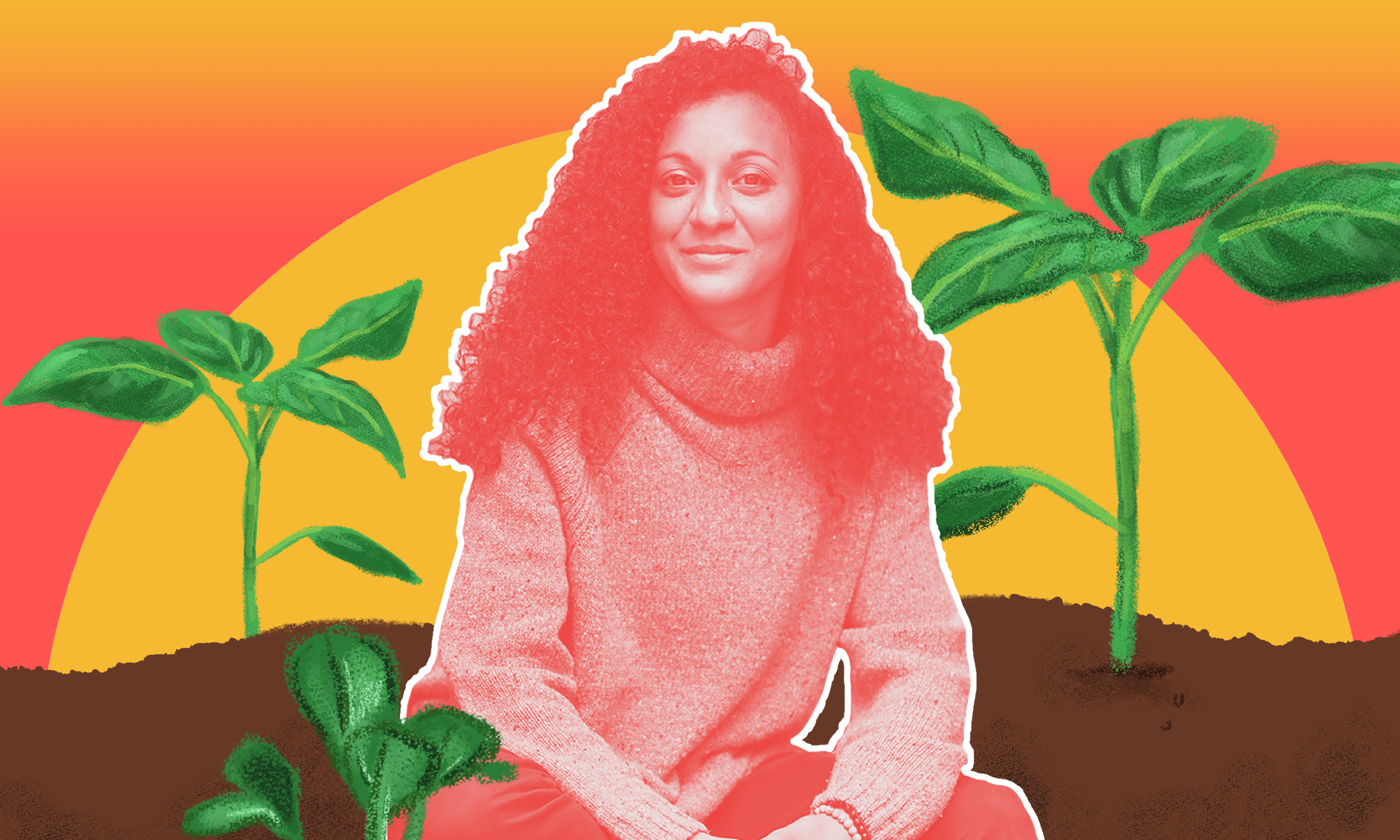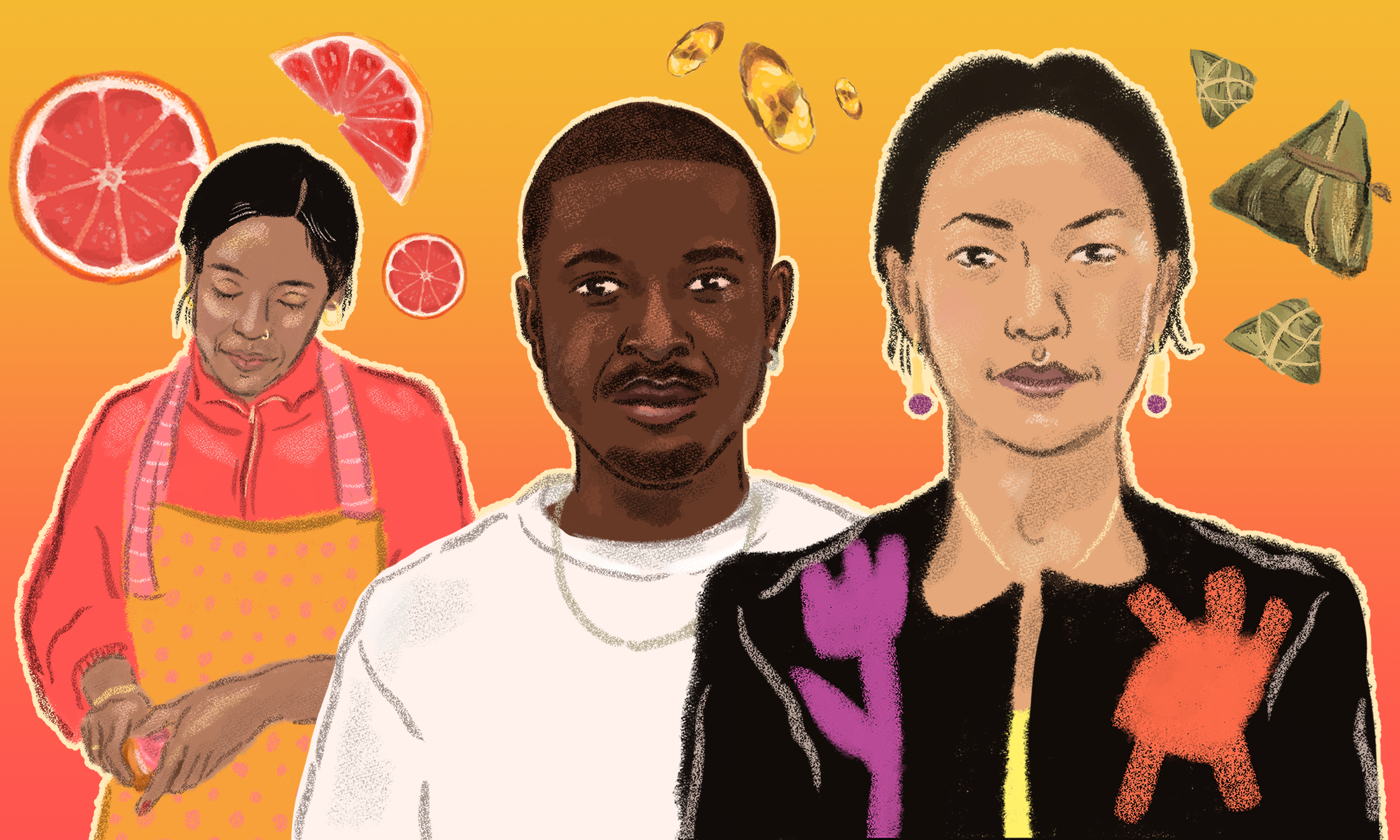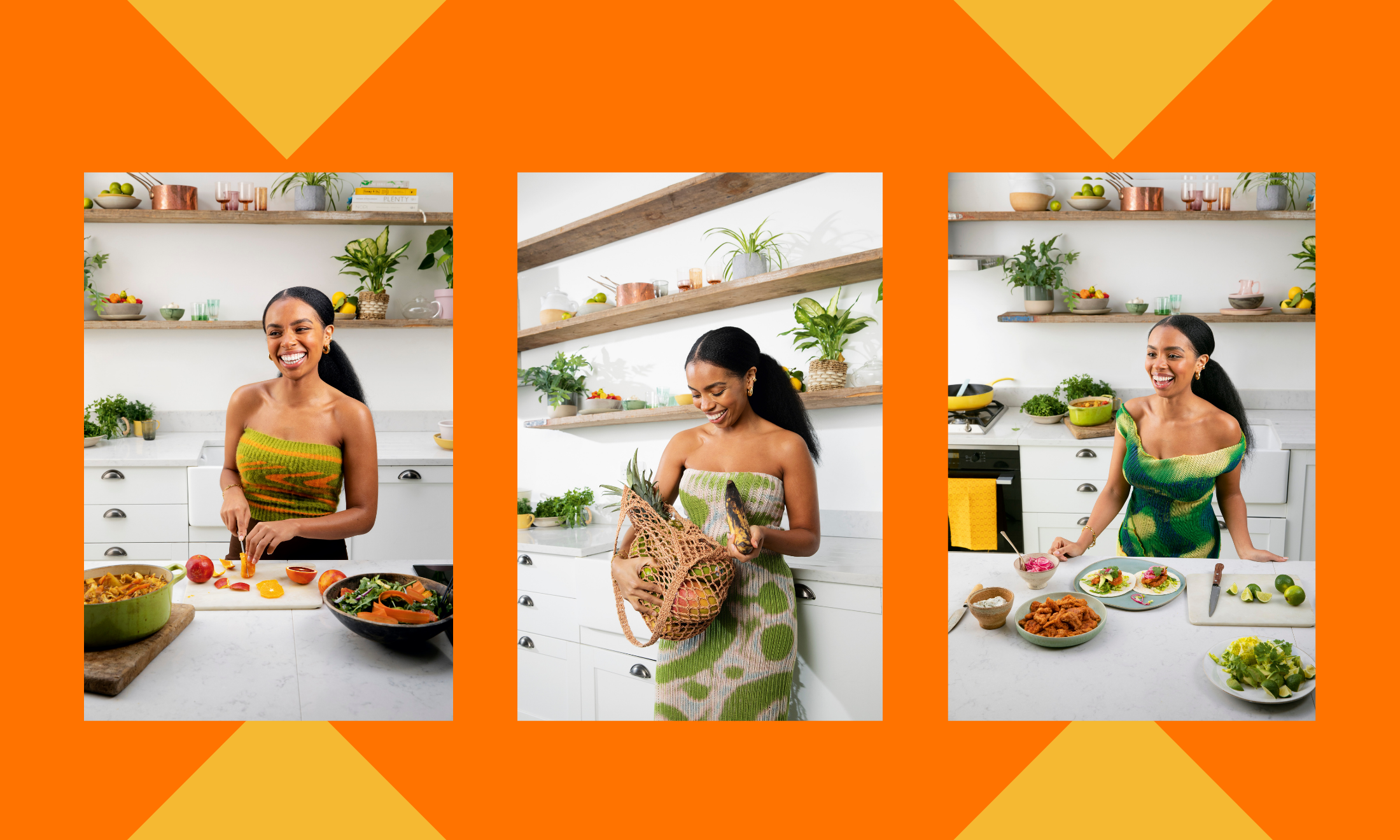
photography by Henry Jay Kamara
Rachel Ama on motherhood, Black veganism and intuitive cooking
Ahead of her new cookbook One Pot, Three Ways, gal-dem sits down with the vegan recipe creator to talk about new motherhood, writing a book in a pandemic and how she plans to change the world through food.
Safiya Robinson
11 Sep 2021
Since the launch of her YouTube channel in 2017, Rachel Ama has been taking the vegan world by storm, cooking up simple, delicious vegan recipes inspired by her Afro-Caribbean heritage. She released her bestselling debut cookbook Vegan Eats in 2019, complete with a soul and hip hop filled Spotify playlist and currently has over 600,000 subscribers on YouTube. One Pot, Three Ways is her latest offering, featuring over 80 new plant-based recipes. But this cookbook has a twist: one main dish as a centrepiece, along with three different ways to remix it across the week to save you time, effort and energy while keeping your meals interesting.
gal-dem: why did you choose this theme for One Pot, Three Ways?
Rachel Ama: I ate pretty similar to the book before I wrote it. People would always ask me “how do you maintain your veganism?”, because I went vegan overnight, and I would explain that I just relearned how to cook. Instead of having that chicken piece be my dinner over the next couple of nights, how could I make a vegan pot of food that can last me? That way I don’t have that end of day “omg what am I making for dinner?” moment, there’s always something there and it’s vegan, it’s delicious and it’s filling.
“I think one of the problems with vegan food before was ”is that gonna fill me up and be enjoyable?'”
Rachel Ama
Especially now as a mum, I can’t think of anything better than knowing that there’s food in the fridge. I’m naturally drawn to comfort food, which to me is just a hearty meal, using whole foods, natural foods, a nice big pot of it. I hate a stingy meal. I think one of the problems with vegan food before was “is that gonna fill me up and be enjoyable?”, and I like to make really colourful, filling food with vibrant textures.
The UK has a serious food waste problem, does your book address this at all?
In my opinion, there are so many benefits to taking a little bit of time to think about what you’re going to eat. It’s about being a little bit more mindful about what you have at home and how to utilise that. You don’t have that rush at the end of the day that can lead to overbuying. The food’s already there, you can just cook up some rice to go with it or little additions. I want to encourage thinking more about your food and how it works. I hope it will become more of an intuitive way to eat – you are looking at the food that you already have and instead of throwing stuff away, you’re finding ways to make it last longer.
How did you manage becoming a new mother and writing a book in a pandemic?
Honestly, I look at my life now and before I was so busy and so tired and now I’m like “what the hell?!”. But then I’m like “Rachel you’ve just got a lot of stamina that you didn’t know you had.” Women are superheroes and sometimes you just don’t realise how strong you are until you’re deeply sleep-deprived, but you’ll go on TV or you’ll write a book. We’ve got powers! There was no spare time, it was just create and create. I think even if it wasn’t a pandemic, I would have been locked away in my kitchen testing and trying.
Did becoming a new mother impact your relationship with food and how you cook and eat?
I think because my mum studied nutrition I’ve always been mindful of my health. Obviously, I lived at the chicken shop when I was a teenager, but when I went vegan, we were both really excited about it. With having a baby, I became really conscious about what I ate for him and how to hydrate for him and what food affects him and is good for his brain. The doctors gave me a list of foods you should avoid, and it was all meat, fish and dairy, and I was like why is being vegan such a crazy thing to do? It’s very interesting being a vegan in the pregnancy-new-mum-world and seeing what is in the shops, the kinds of baby food available and what we’re told that my son needs. It’s a whole minefield.
How would you describe your relationship with food now?
It’s one of life’s greatest gifts to be able to sit down and enjoy a really delicious plate of food – it’s a beautiful luxury. It should be enjoyed and I love to be able to have a nice big meal and celebrate that meal by paying attention to it. I’m not someone who will eat on the go, I’m not really a snacker, I take pride and enjoyment in knowing I’m gonna eat something delicious and I’m gonna fuel my body in a really nice way. And it feels good, knowing what I’m eating is fueling me, especially when I was pregnant. I remember in the beginning I had a meeting and I didn’t eat before because I was rushing around, and I started to get really faint, and that’s never happened to me before. That was one of the wake up calls, like “Rachel, you’re making a human, you’re gonna have to spend a little more time nourishing your body for this adjustment”.
“My mum studied nutrition I’ve always been mindful of my health. Obviously, I lived at the chicken shop when I was a teenager, but when I went vegan, we were both really excited about it”
Rachel Ama
What was the creative process like writing your second book? How do you usually develop your recipes?
Most of the things that I make are from some kind of memory or experience. I was supposed to go to Ghana and Nigeria, and I was really excited for the opportunity to get a fresh take on African food and just kind of be in it and be where my inspirations take me, but obviously, the world had other plans. Although I didn’t get away, I did watch loads of food travel blogs, I could watch them all day, street food in different countries, things like that. Every now and then I get a random memory – my cajun beer-battered oyster mushrooms are based on a Po Boy I tried in New Orleans. I wasn’t vegan when I was there, and to me, it’s quite fun trying to recreate the flavours.
One-pot dishes are very prominent in Black food culture, whether it be West African soups and stews or West Indian soups and rundowns. How do you think the Black Vegan space has changed since your first book?
I went to a Black food market and it was really eye-opening for me because a lot of the people behind the stalls were like “omg Rachel I’ve been following your recipes”. I had no idea that I had contributed to giving other Black vegan creators the confidence to start their own ventures and feel that there was a space for their food to be appreciated and I was like “wow!”. It was a really beautiful moment.
“We need to make space for food. I think it’s a space where we can claim some power back that has been lost”
Rachel Ama
We’ve been taken so far away from how we used to eat, which was more vegetable-based, eating off the land, but there’s been this little shift in the world that’s been really nice to see. It’s changing and it’s changed so much. I’m so grateful to be part of it.
How do you think the pandemic has changed the way that we eat?
The fact that you couldn’t go to the supermarket and actually access things you wanted was a real challenge. It meant that people had to find more interesting ways to cook with things that they’re not used to. I don’t know the figures for Deliveroo and takeaways but I reckon they’ve never been utilised at this rate ever before. I think that the balance is actually cooking at home and using fresh seasonal vegetables. Food can be a lot more affordable and a lot more enjoyable to take the time to cook for yourself and your family. We need to make space for food, you are what you eat, it’s so incredibly important. I think it’s a space where we can claim some power back that has been lost. Enjoying the fruits of your labour is a naturally rewarding process.
Black motherhood is such an important topic, especially with regards to our health and the challenges we face within an anti-black medical system. Do you have plans to discuss this in-depth or pivot to mother and baby content?
Motherhood is a huge topic. Although I don’t touch on it much in this book I do really want to talk about it further because I think there’s just so much people can gain from it, between pushing and fighting for a home birth as a Black woman and just being able to fight for my needs and have a positive outcome. There’s so much of what I gained and learned from living with my mum with a newborn that I want to share. It’s kind of frowned upon in today’s society but actually, in our roots, it’s very normal – it takes a village to raise a child. I do hope that Black mothers and mothers-to-be are looking into what they are eating and how they are living and ensure they are nourishing themselves as best they can!
What’s next?
I think at this point in my career I would love to create some change. For me – and you can love him or hate him – it would be something similar to what Jamie Oliver did with school dinners. I loved what he was doing, all my other friends were like “he’s ruining everything!” but I was like “this is lit!” I’m trying to be a female Black Jamie Oliver and create change. I think having a baby has put even more force behind that goal, it’s opened my eyes to so much.

